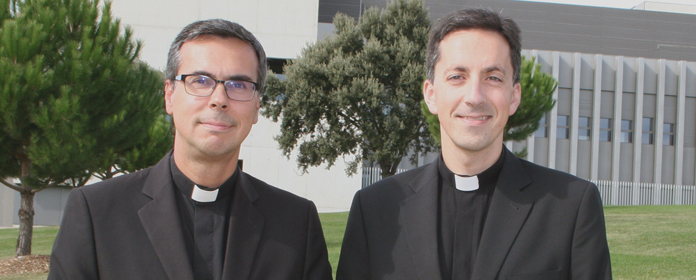The University is researching science and religion in Spanish schools with scholarship from the John Templeton Foundation.
Experts to discuss stories in science classes and their compatibility with a theistic and religious world view

PHOTO: Isabel Solana
Researchers from the group 'Science, Reason and Faith' (CRYF) and the Institute for Culture and Society (ICS) of the University of Navarra are developing a project on science and religion in Spanish schools. It is funded by the John Templeton Foundation and will end in May 2021.
In each of the three academic years covered by the initiative, one topic will be studied: the origin of the universe and creation (2018-2019), evolution and divine action in the world (2019-2020) and the origin and specificity of man (2020-2021). There will also be two editions of the competition 'Education, science and religion', which will reward the students who produce the best essay on these issues.
The principal investigators are Javier Sánchez Cañizares, director of the CRYF and researcher of the group 'Mind-brain' of the ICS, and Rubén Herce, member of the CRYF and professor of the School Ecclesiastic of Philosophy. Two other CRYF members are also part of the team: Santiago Collado, from the School Ecclesiastic of Philosophy, and Antonio Pardo, from the Unit of Humanities and Medical Ethics (School of Medicine).
"We intend to analyze the stories used in science classes in Spanish schools and their compatibility with a theistic and religious vision of the world," says Javier Sánchez Cañizares.
According to agreement with the expert, who holds a doctorate in Physics and Theology, "while the relationship between science and religion is increasingly present in the academic world of the Hispanic world, the issue does not seem to have been sufficiently addressed in the last years of ESO and in the last years of ESO, when many students form their basic intellectual approaches from the great questions about the universe, life and the human being". high school diplomawhen many students form their basic intellectual approaches on the basis of the great questions about the universe, life and the human being".
The project has three specific objectives. The first is to map the main narratives used by teachers and students in science subjects and their relationship with God and religion. The second is to create a permanent clustergroup of teachers who will periodically address the fundamental pedagogical issues that arise in presenting a worldview where science and faith are complementary. And the third, to prepare specific materials for science and religion courses in Spanish that can be included in the curricula of high school diploma.
More information about project:
